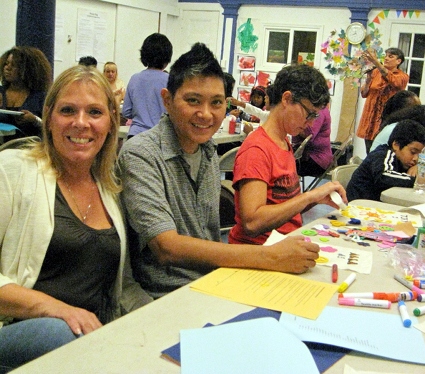“Flags of Hope” exhibit highlights domestic violence

Survivors of physical abuse are getting their message out through the arts.
Last week, The Safe Homes Project, through Good Shepherd Services, sponsored “Flags of Hope,” a crafts project to memorialize those who died as a result of domestic violence and to build solidarity among survivors. Their mission is to educate the wider community on recognition and prevention of abuse in children, adults and the elderly, and on the many resources available to help and protect victims of domestic violence.
For 18 years, the Safe Homes Project of Good Shepherd Services (formerly known as the Park Slope Safe Homes Project), has conducted an annual candle light vigil in October. This year, Safe Homes has collaborated with the Park Slope United Methodist Church to present a different, creative event, a first of its kind in Park Slope.